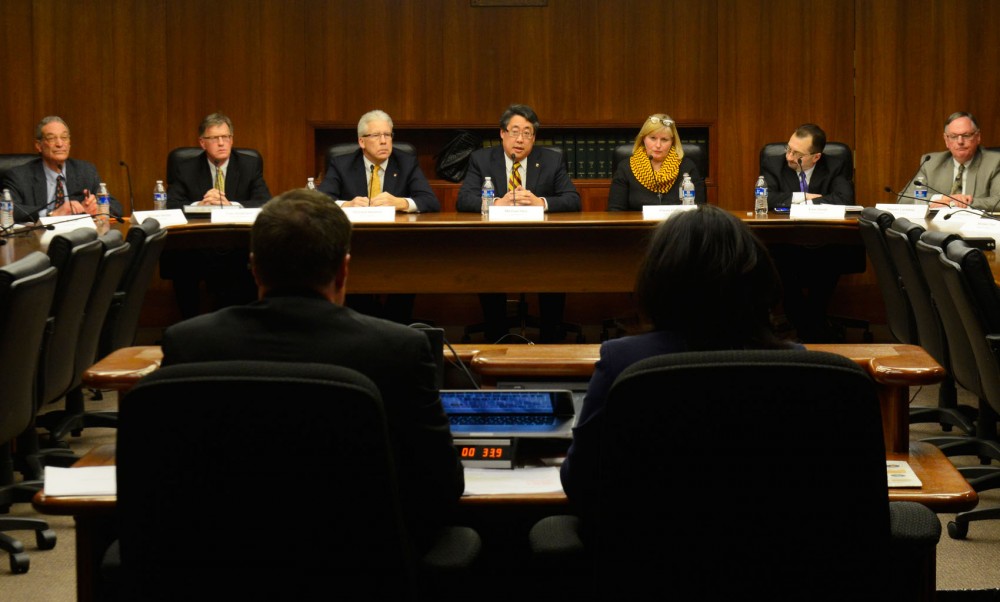The 10 candidates vying for the five open seats on the Board of Regents fielded questions from state legislators, University students and officials at the State Office Building on Wednesday, offering ideas on how they would improve the University if elected.
Some of the questions pertained to the board’s relationship with faculty members, the University’s options for generating additional revenue to keep tuition low and the institution’s autonomy from the state.
The event was organized by the Regent Candidate Advisory Council and the University of Minnesota Alumni Association.
The association has arranged similar public forums in the past, said Lisa Lewis, president and CEO of the Alumni Association, but it’s been almost a decade since it hosted a candidate-centered event.
In addition to being asked what they think of the state’s current investment in the University, candidates suggested ways the institution could gather additional support from lawmakers.
“I think we could always use more investment, but I think we also have to be very efficient with how we use that money,” sixth district candidate Michael Hsu said on Wednesday. “You have to do a better job about communicating the value that the University produces for the state of Minnesota.”
Some candidates were also asked how they would cut administrative costs and keep tuition affordable.
Tom Anderson, competing for the seventh district position, said the University could increase its philanthropic efforts and look for additional sources of revenue, like with patents and royalty payments.
A joint legislative group — comprised of members from the state Senate and House higher education committees — will choose five candidates to move forward in the selection process next week.
After the group makes its selections, the five candidates will seek approval from the full state Legislature.
Although the committee chooses which candidates to advance in the selection process, legislators can still elect their own regent nominees.
“Any legislator, once we’re in that joint-legislative session on the floor, they can nominate anyone,” said Sen. Terri Bonoff, DFL-Minnetonka, chair of the Senate’s higher education committee. “I’m sure that will happen.”
Bonoff said she wouldn’t elect a candidate who hasn’t endured the selection process, which includes various interviews with the RCAC and public questioning.
“We respect the process,” she said. “The Regent Candidate Advisory Council spends hours researching, talking to references, doing backgrounds and interviewing. I will only give those who were forwarded the committee time.”


